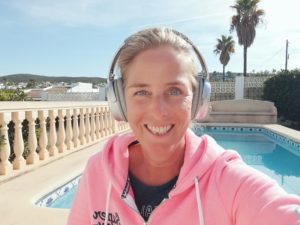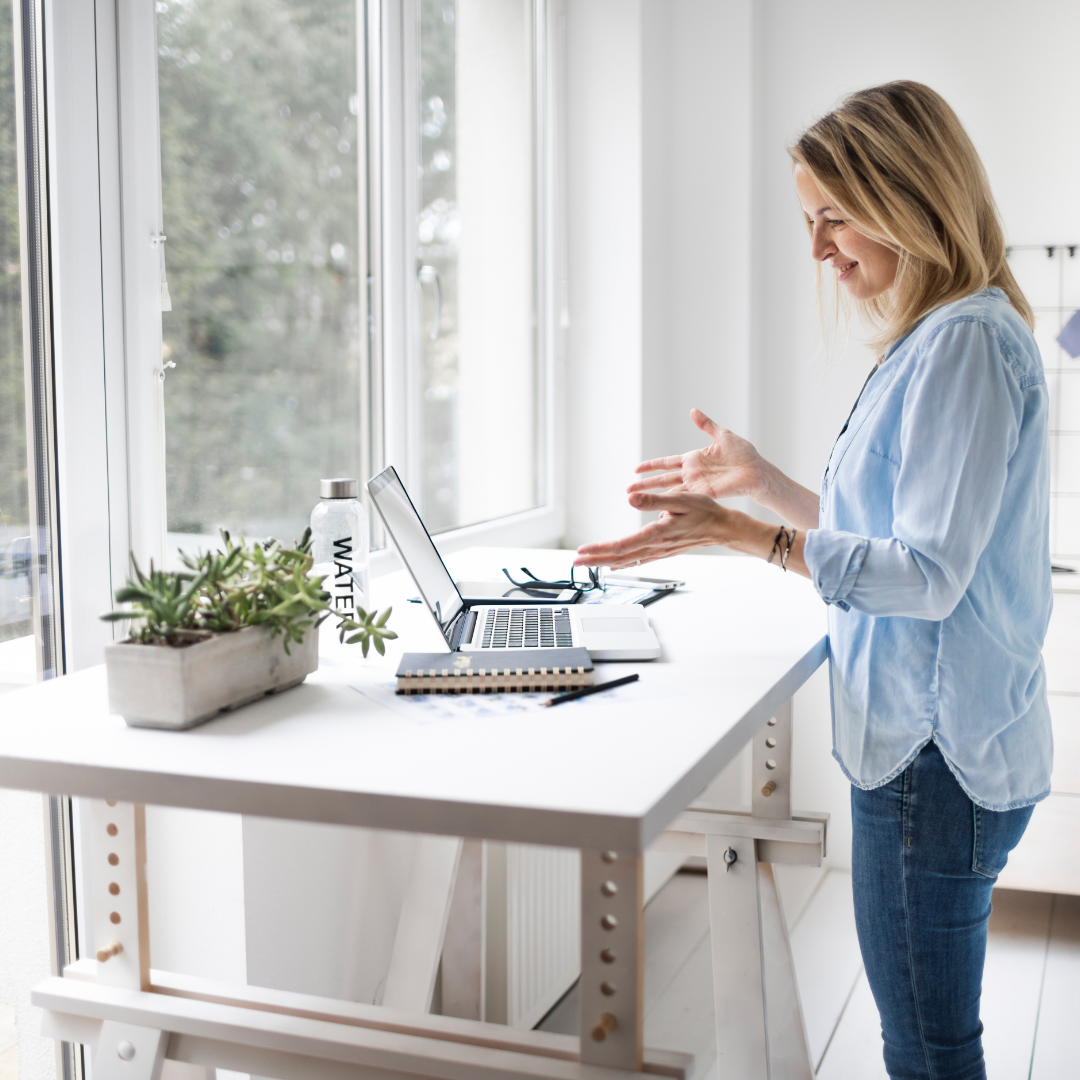There’s a lot of buzz going around about getting an ADHD diagnosis these days, almost as if it’s a new badge of honor. But what if you don’t quite fit that profile? What if you experience heightened reactions, have a mind bursting with ideas, easily feel overwhelmed, yet don’t identify with ADHD?
Enter the world of sensory sensitivity—a lesser-known but equally impactful trait. Being sensory sensitive means you react strongly to stimuli like light, sound, touch, smell, and even subtle environmental changes. What seems normal to others can trigger significant responses in you. These sensitivities vary widely, influenced by factors such as gender, menstrual cycle phase, whether you slept well or not, and how your past days and weeks have been.
As an entrepreneur, getting your work done while dealing with these sensitivities is no easy task. And some days it all goes much better than others.
Sensory sensitivities can affect your ability to focus, manage stress, and maintain productivity. However, you can create a business model and work environment that supports your unique needs with the right strategies and tools. This is why I’m so passionate about creating a freedom business, as I teach inside my Freedom Business Creators program, so you can run your business in a way that truly works for you and your sensitivities.
Here are some practical productivity hacks specifically designed for sensory-sensitive entrepreneurs, you can start incorporating right away.
10 Productivity Hacks for Sensory-Sensitive Entrepreneurs
Optimize Your Work Day
1. Optimize Your Work Environment
Creating a sensory-friendly workspace is crucial. Pay attention to lighting, noise levels, and ergonomics. Use natural light where possible, or opt for warm, dimmable lights to reduce glare. Noise-canceling headphones or white noise machines can help block out distracting sounds. I absolutely love my Bose noise-canceling headphones.

2. Use Sensory-Friendly Technology
Technology can be both a help and a hindrance. Invest in blue light filters for your screens or use apps like f.lux that adjust screen color based on the time of day. Consider keyboards and a mouse that feels comfortable to use, makes little to no click or tapping sounds and is soft on your fingers to tap. I love using a laptop because the keys are usually a lot lighter to tap. I always test them out in the store before buying.
3. Prioritize Tasks with Time Blocking
Time Blocking Techniques
Time blocking helps manage your energy levels by structuring your day into dedicated blocks for specific tasks. Use a planner or digital calendar to allocate time for high-focus work, meetings, and breaks. Tools like Google Calendar or Trello can help with this.
Example of Time Blocking
For instance, dedicate early mornings early in the week to high-concentration tasks or highly creative tasks, special days and time blocks for meetings or collaborative work, with enough recovery time after, and afternoons or end of the week for administrative tasks. Reserve a different type of time block for creative brainstorming and go for a walk, meditate or take a shower. Getting yourself out of your workspace really helps to get those creative juices flowing.
Hack your brain
4. Schedule Sensory Breaks
Add regular sensory breaks into your day. These can be as simple as stepping outside for fresh air, practicing deep breathing exercises, or doing a quick stretch. Apps like Stretchly can remind you to take breaks and suggest different activities to help you recharge. However, for many sensory sensitive people, the reminders of an app or your alarm are too disturbing.
That’s why I usually recommend creating a new habit for yourself and getting more in tune with what your body and mind needs. And listening…
5. Use Mindfulness and Relaxation Techniques
Benefits of Mindfulness
Mindfulness practices can help manage sensory overload. Techniques such as deep breathing, meditation, and progressive muscle relaxation can reduce stress and improve focus. There are plenty of apps available that offer guided sessions. You can easily integrate it into your daily routine.
Incorporating Mindfulness
Start your day with a short mindfulness session to set a positive tone. During breaks, practice mindfulness exercises to reset your focus and maintain productivity throughout the day. Not a fan of mindfulness? Or are you already thinking… I don’t have time, energy or mental bandwidth for this? I hear you. That’s why I love to remind people that it can be as easy as taking a mindfulness moment. (just a minute or so)
6. Create a Routine
Develop a Consistent Routine (that works for you!)
Having a predictable routine can reduce sensory overload and increase productivity. Develop a consistent start and end time for your workday, and stick to regular meal and break times. This predictability helps in managing your energy and maintaining a calm work environment.
Benefits of Routine
By following a routine, you create a sense of stability and control over your environment, which can significantly enhance your productivity and well-being.
However, if freedom and flexibility is important to you, give yourself the flexibility to stay in the spirit of a consistent routine, whether you start at 6am one day or 8am the other day, as long as you keep up your daily intention.
7. Mix it up with a Sensory Diet
Understanding Sensory Diets
Mixing up sensory activities throughout your day helps to keep your nervous system balanced. Create a buffet of mental and physical activities and mix them up. Add in tactile activities like playing with stress balls, auditory activities like listening to calming music, or movement activities like exercising, dancing or yoga.
Incorporating Sensory Diets
Integrate sensory activities strategically throughout your workday to regulate your sensory input and optimize your focus and productivity.
Get help from tools to reduce your workload
8. Use Assistive Tools and Apps
Effective Tools and Apps
There are numerous tools and apps designed to aid productivity while catering to sensory sensitivities. Tools like Todoist for task management, Focus@Will for concentration-enhancing music, and Evernote for organizing notes can be particularly helpful. I love Evernote, it’s my evergrowing source of inspiration.
Choosing the Right Tools
Select tools and apps that align with your sensory needs and preferences to maximize their effectiveness in your daily workflow. Most of them have a free version you can test out. Find one that works for you, and if that’s an Excel sheet, that’s perfectly fine too.
9. Delegate and Automate
Benefits of Delegation and Automation
Don’t hesitate to delegate tasks that are overwhelming or repetitive. You can delegate to a person, like a virtual assistant, or you can use tools and softwares, like I love to do. Using time-saving and automation tools help streamline processes, free up time and reduce the sensory load. Or a I like to put it, if you don’t have to do it, you have time for other things, like going for a walk.
This also allows you to focus more of your time on tasks that require your unique skills and creativity. Check out my Organized Creator Toolkit here to help you get started with my favorite tools.
Be kind(er) to yourself
10. Practice Self-Compassion – Grow a Positive Mindset
Finally, be kind to yourself. Or be more kind to yourself. Acknowledge that sensory sensitivities are a part of who you are, and it’s okay to need different strategies to thrive. Celebrate your successes, no matter how small, and give yourself grace on challenging days.
By giving yourself self-compassion and accepting yourself as the wonderful human you are, you grow a positive mindset that supports your overall well-being and long-term success as a sensory-sensitive entrepreneur.
And remember…
Rome wasn’t built in a day. Paris either. You are also a work in progress.
Sensory-sensitive entrepreneurs can thrive by tailoring their work environment and habits to suit their needs. By implementing these productivity hacks, you can create a supportive workspace, manage sensory overload, and maintain high levels of productivity. Remember, the goal is to work smarter, not harder, and to find balance in a way that respects your sensory sensitivities.

Show Comments
- Hide Comments
Back to blog home